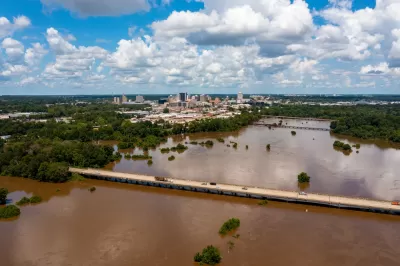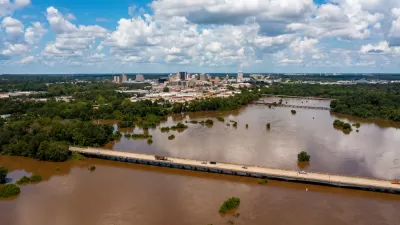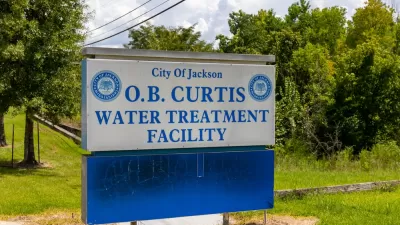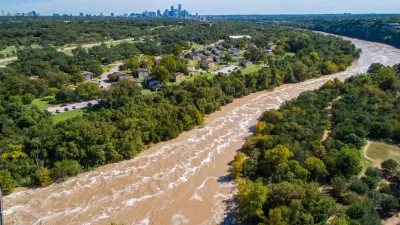Planning and funding are both in dire need in Jackson, Mississippi. The question is who should be in charge of all the planning and funding.

All eyes are still on Jackson, Mississippi, where an August emergency left an estimated 180,000 residents without drinking water.
Since then, local, state, and federal officials have been jockeying to place blame and position themselves favorably for the future. Annie Snider first reported, for example, that Rep. Bennie Thompson (D-Jackson) is seeking $200 million in funding for the city that would be allocated through the Environmental Protection Agency, thus bypassing the state of Mississippi entirely.
In the same article, Snider reports that state and local officials estimate the cost of repairing the city’s water system could be as much as $1 billion. “The city has not completed a long-term plan for addressing its problems. Thompson said $200 million is ‘what appears to be reasonable’ now, in the absence of a plan,” writes Snider.
Writing for the Mississippi Free Press in a separate article, Nick Judin details the back and forth between state and local officials as they push for funding to fix Jackson’s emergency for the long term. Jackson Mayor Chokwe A. Lumumba, for example, “has often complained of the Mississippi Legislature’s ‘paternalistic’ authority over infrastructure funds, both those derived from the federal government and from Jackson’s own citizens,” writes Judin.
Also according to Judin, Rep. Thompson is pushing for a planning process to identify the problems that caused the failure and “[extricate] itself from the depths of infrastructure collapse.”
FULL STORY: Rep. Bennie Thompson Seeks $200 Million Federal Aid For Jackson Water System

Planetizen Federal Action Tracker
A weekly monitor of how Trump’s orders and actions are impacting planners and planning in America.

Map: Where Senate Republicans Want to Sell Your Public Lands
For public land advocates, the Senate Republicans’ proposal to sell millions of acres of public land in the West is “the biggest fight of their careers.”

Restaurant Patios Were a Pandemic Win — Why Were They so Hard to Keep?
Social distancing requirements and changes in travel patterns prompted cities to pilot new uses for street and sidewalk space. Then it got complicated.

Platform Pilsner: Vancouver Transit Agency Releases... a Beer?
TransLink will receive a portion of every sale of the four-pack.

Toronto Weighs Cheaper Transit, Parking Hikes for Major Events
Special event rates would take effect during large festivals, sports games and concerts to ‘discourage driving, manage congestion and free up space for transit.”

Berlin to Consider Car-Free Zone Larger Than Manhattan
The area bound by the 22-mile Ringbahn would still allow 12 uses of a private automobile per year per person, and several other exemptions.
Urban Design for Planners 1: Software Tools
This six-course series explores essential urban design concepts using open source software and equips planners with the tools they need to participate fully in the urban design process.
Planning for Universal Design
Learn the tools for implementing Universal Design in planning regulations.
Heyer Gruel & Associates PA
JM Goldson LLC
Custer County Colorado
City of Camden Redevelopment Agency
City of Astoria
Transportation Research & Education Center (TREC) at Portland State University
Camden Redevelopment Agency
City of Claremont
Municipality of Princeton (NJ)





























